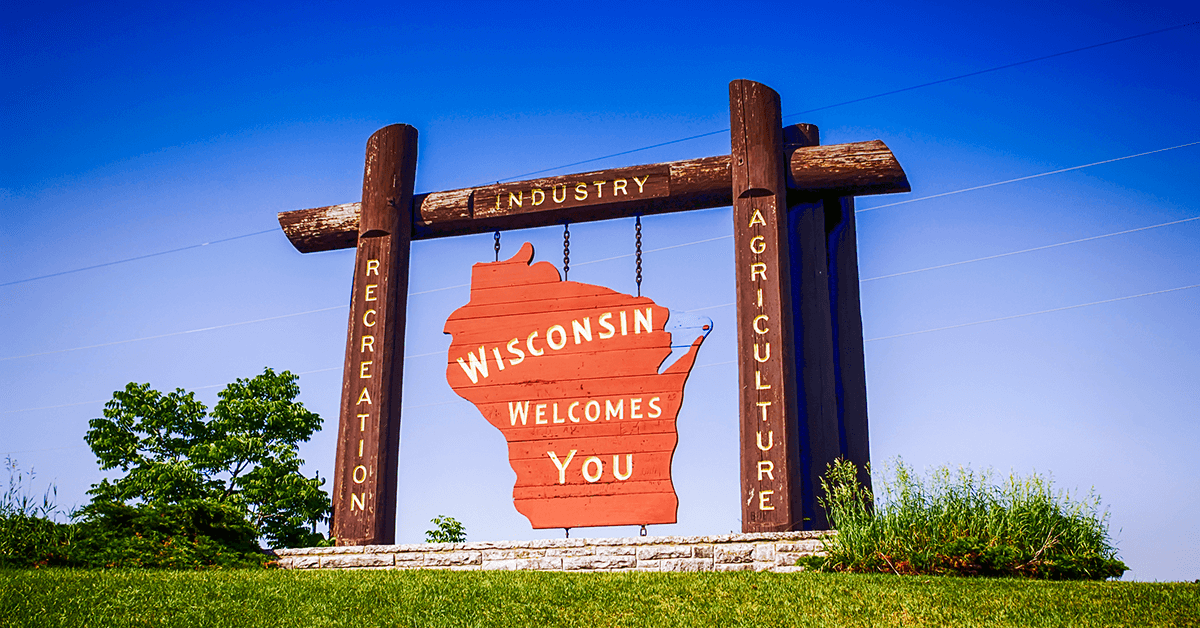
3 Tips to Safely Open Your Second Home for Rental During COVID-19 in Wisconsin
Wisconsin is open. It’s great news for local businesses, restaurants, and bars who depend on the economic upswing of summer, and the tourists that accompany it. But is it great news for area homeowners who are wondering if it’s safe to open their second homes up for vacation rentals as the world around them creeps back to normal?
In the second week of May, The Wisconsin Supreme Court overturned Democratic Governor Tony Evers’ “Safer at Home” order and locals- as well as individuals from surrounding states with stricter guidelines – feeling liberated, flocked to area bars and tourist destinations. Not all Wisconsin towns are in agreement with the decision, and some have issued stricter guidelines of their own.
But short term rentals around Wisconsin’s lakes and in the Northwoods are still appealing to vacationers. These rentals are fairly simple to book and might be safer than vacationing in a hotel or condo with multiple shared spaces. Robert A. Norton, a professor of Public Health at Auburn University notes, “Short-term house rentals are one of the most attainable low-key vacation options — and one of the safest.”
Whether or not you decide to open your second home up for rentals will depend on your area’s guidelines and your personal level of comfort with the situation. If you do choose to rent your second home this summer, here are three tips for doing so safely.
- Up your cleaning regime and be vocal about it: Both Airbnb and VBRO have instituted cleaning protocols that their hosts must adhere to. If you rent your second home using one of these platforms you will need to follow their guidelines. However, if you manage your own rental, you will need to develop a thorough cleaning process and share it with your guests.
Remember to protect yourself during the cleaning process. Wear gloves and a mask and avoid touching your face while cleaning. It is also important to wash your hands thoroughly when you are finished. When cleaning your rental space, clean first and then sanitize with a disinfectant registered by the Environmental Protection Agency, or that follows the CDC’s guidelines. Give special attention to highly touched areas like countertops, door handles, and faucets.
Wash linens and clean other soft surfaces like couches and rugs with the appropriate indicated cleaner. Don’t forget to empty and clean trash cans, empty your vacuum cleaner, and disinfect laundry baskets and hampers.
- When in doubt, spread renters out: Creating a buffer between different renters will give you and the occupants extra peace of mind. Norton echoed this advice in the article “From the study that evaluated how long the virus persists on surfaces, we know the virus can be stable on some surfaces for up to three days. The longer the home has been unoccupied, the better.”
- Install a smart lock: Installing a smart lock will allow you to unlock your home without any contact between you and your renters. Smart locks also eliminate another touchpoint for your guests. Keyless entry systems are a great addition to contact free check-in and check-out procedures.
- Go cashless: Allowing online payments through platforms like PayPal, Venmo, or directly through your booking website will streamline the no-contact check-in process and appeal to guests looking to minimize face to face contact during COVID-19
- Don’t require a minimum stay and be open to long term rentals: In a time where people are both excited to travel and nervous to be away from home, having a flexible booking policy will help your vacation home appeal to the most guests. The article How to Market Your Vacation Rental Property to Domestic Travelers says, “You can allow guests to stay for a single night, but also offer long-term discounts.”
- Be flexible with your cancellation policy: These are uncertain times and people are hesitant to spend money on plans that may have to be canceled should state guidelines become more stringent. During this pandemic, offering a flexible cancelation policy that accounts for changes related to COVID-19 will allow your guests to book with confidence.
In Wisconsin, it is possible during COVID-19 to safely open up your second home for rentals with just a few adjustments to the usual process.
Time to Focus on Affordable Housing
Taxes on real estate are not the answer. Sign the petition calling on Congress to address our country’s housing shortage.





